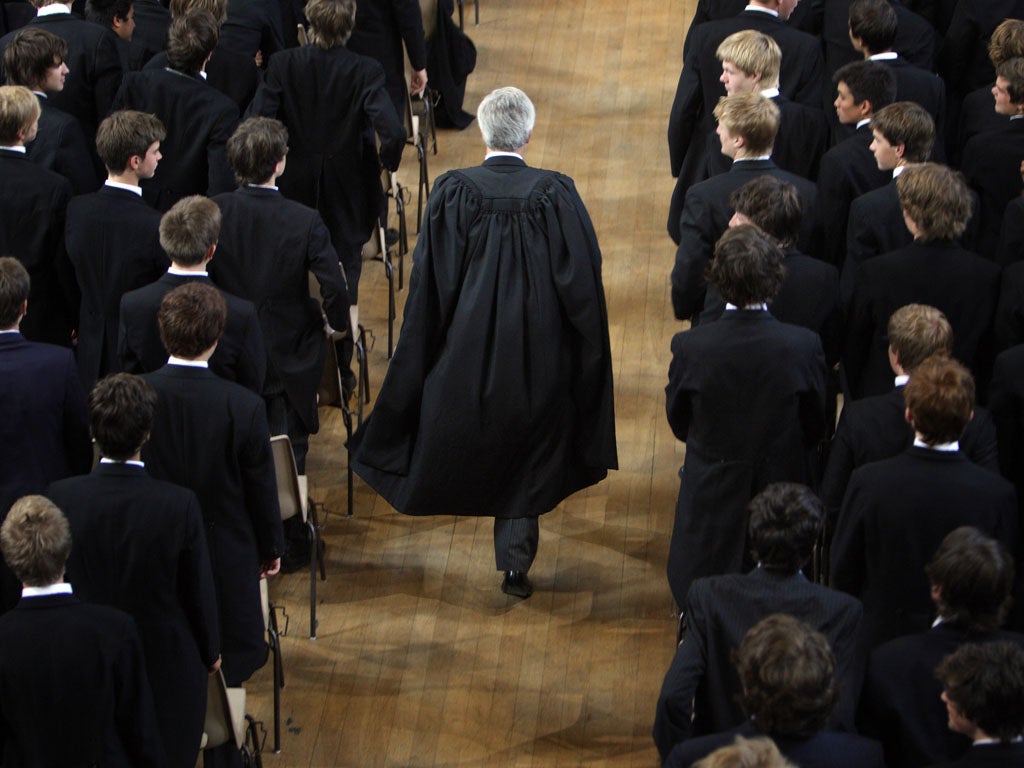Never mind sharp-elbow parenting, David Laws. True equality of opportunity would mean the abolition of private education
The Schools Minister thinks we need pushy parents and more scholarships. But a few poor bright sparks mingling with posh kids is not going to bring about a fairer society

We’ve had helicopter parenting. Now make way for sharp-elbow parenting. It’s the technique mums and dads must acquire to secure the brightest future for their offspring, according to the schools minister David Laws, who told a Commons education committee that pushy parents are admirable role models.
The hearing concerned under-achievement in white working-class children, and asked by a committee member about the sharp-elbowed middle classes dominating the system and hogging the best school places, Laws spoke up for “parents and people who seek to invest a huge amount of money to give their young people opportunities in life.” Apologies for stating the obvious, but that’s fantastic for those with a huge amount of money to invest.
“To do all you can to help your children succeed in life is exactly what we want everybody to be doing,” he added. “I’m afraid we can’t cap any of those opportunities.” Well, they could, but let’s move on to the key line: “What we want to do is extend them to young people who are not getting them at the moment.”
In that sentence are the seeds of a social revolution. Imagine a society in which there was genuine, god’s-honest 110-per-cent equality of opportunity. Pity it’ll never happen.
Why will it never happen? Because it would mean the abolition of private education and the remnants of the selective system. Because it would necessitate a socialist utopia (or dystopia, depending on your viewpoint and whether state-enforced equality would leave you better or worse off).
We can make moves towards a social revolution without the need for one of the political variety, of course, and that’s what Laws is referring to in “extending opportunities”. But without wholesale institutional changes, whatever they may be, it could only ever be piecemeal tinkering. Talk of public schools awarding more scholarships is pure tokenism. A few poor bright sparks mingling with the posh kids is not going to bring about a fairer and more equal society.
He was right to tell the committee that low attainment at school is usually bound up with factors beyond the school gates: poor parental support, poverty, poor housing. And he’s probably right to make sharp elbows sound like a parental asset. Of course parents should strive for the best for their children. When my son was allocated a place in a local school we didn’t like, we fought until we got him in somewhere we did like.
Of course parents should try to get their children into grammar school if they live in Kent (or in the case of neighbours of mine, South-east London). Of course – listen hard and you may hear the sound of grinding teeth here – parents who can afford it should send their kids to private school if they want to maximise their chances of getting into Oxbridge and landing a well-paid job.
It’s not the fault of any single rich person that private schools exist. The fact is, they shouldn’t – it’s as simple as that.
Members of the ancient regime reel in horror and accuse private-education abolitionists of wanting to drag everyone down to some notional level located perilously close to the hell you reach in a handcart. But think what would happen if the rich and powerful had to send their children to state schools. Standards would rise, sharpish. As I say, pity it’ll never happen.
Join our commenting forum
Join thought-provoking conversations, follow other Independent readers and see their replies
Comments
Bookmark popover
Removed from bookmarks